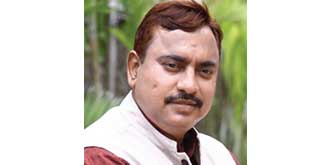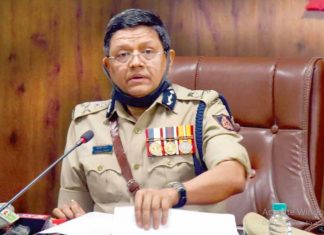Over time, forensic science has evolved into one of the most important features of crime investigation. In recent decades, with the evolution of technology, crime has acquired such sophistication that sometimes only forensics could provide a clue to achieve a breakthrough in its investigation.
Renowned scientist, Archimedes, once cracked a case of fraudulence, wherein he proved that a crown was not made of gold (as it was fraudulently claimed), by its density and buoyancy. That’s one of the earliest examples, of use of forensic science in detection of crime. One of the most important figures in the history of forensic science, Sir Edmond Locard established the unique concept of ‘Principle of Exchange’ that stated two objects in contact, is sure to leave a trace on the other. This forms the basis of any forensic examination, experts believe.
Generations and passage of time has evidenced, how crime incidents have increased and are adopted in newer shapes and forms every now and then. Forensic science too has tried to keep pace with newer discoveries and development, controlling its growth. Since 200 BC, forensic science has evolved with time and reached new heights. Its reach and awareness among people has helped to stretch its wings to newer horizons, thanks to media, education and more and more application in practical life.
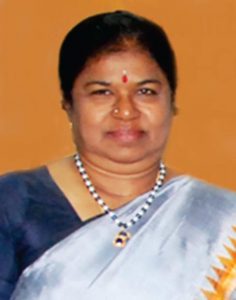 Dr. Rukmini Krishnamurthy, is the Chairperson at Helik Advisory Limited, a Government certified Forensic Agency and is a member of Academic Council, Gujarat Forensic Science University. Her contribution and achievement in several forms as a forensic expert related to the Maharashtra State Government, has been commendable in curbing crime incidences in the state and prompt solving of such cases. As, we leap to reflect on the changing face of forensic science, over the yeas, Dr. Krishnamurthy, throws light on the various aspects of the forensic science and its evolution. Excerpts.
Dr. Rukmini Krishnamurthy, is the Chairperson at Helik Advisory Limited, a Government certified Forensic Agency and is a member of Academic Council, Gujarat Forensic Science University. Her contribution and achievement in several forms as a forensic expert related to the Maharashtra State Government, has been commendable in curbing crime incidences in the state and prompt solving of such cases. As, we leap to reflect on the changing face of forensic science, over the yeas, Dr. Krishnamurthy, throws light on the various aspects of the forensic science and its evolution. Excerpts.
In the last few decades forensic science has developed in leaps and bound. In the current scenario of witness turning hostile, police is heavily dependent on forensic science evidences. Elaborate your opinion on the development in this sector and what can be done to further bette rimplementation.
Forensic science has evolved radically, globally. It is hardly 50 years old in our country, whereas other countries are witnessing constant development in this sector. The development of the forensic sector requires more deliverability, accountability and monetary assistance from Government sector. We all know criminal justice system involves different departments forensic, police, judicial and forensic medical experts. To solve any case, all these four agencies need to work in close co-ordination, whether it is for conviction or acquittal. These types of interactions usually happen at conferences and meetings. According to me, responsible persons at the center level should be very active, so that related discussions take place and the shortcomings are solved amicably. It is not always fault finding but also facts finding that result through these discussions.
When a particular crime case is forwarded to a forensic lab it’s crucial for the forensic expert to visit the crime scene, soonest possible to collect the crucial physical evidence. Today, even if the forensic laboratory is valiquette, the crucial physical evidences from the crime scene are not properly collected leading to losing the case in the court of law. Ultimately it is about crime scene management, which is a vast area and of immense importance globally; In our country, however it has not yet come up to the marked level. We have been persistently working towards the improvement of crime scene management and we believe that it is the key to solving any crime. Very soon, the Gujarat Forensic Science University, which has handled and solved several crime incidents, is coming up with a project to prepare a dedicated forensic science van with trained forensic experts to collect proper scientific evidence from the site and help the police.
When we discuss about collecting physical evidence, normally it can be collected immediately from the crime scene, but sometimes there is a delay, by the time the police arrives it could be a few hours or it could be days. Is it possible to involve forensic people in collecting the evidence from the crime scene, at the right hour?
Emergency calls for immediate action. In other fields of expertise, for example medical, we have cases of emergencies. Likewise in forensic too, unit of emergency attend cases wherein the bare minimum time to reach distance to be covered is the only time taken by the forensic expert to be on the crime scene. Because it is a fact that in any event or a crime scene it is the smallest physical evidence that can connect the case and prove the case in the court of law. Only the presence of a forensic scientist at the crime spot does not help in solving a case or collecting physical evidence, it requires sophisticated ammunitions to visualize it and do the collections. This can be best served by mobile forensic vans and their availability should be such that they should be able to attend cases where physical evidence is important.
When it comes to collection of physical evidence, the police may not be well informed about as to what to collect or what should be preserved for the case. How can this be tackled?
Forensic science does not end here, it is important that due emphasis is on the investigation post event. There is another big domain in forensic which is the Academic of Forensic. One needs to have academic knowledge in forensic that is imparted by Gujarat Forensic Science University. Recently,we have come up with a project that there should be a dedicated training program for the police on forensic science. Unless policeman is well-acquainted with the event and where to take forensic help, he won’t be able to solve brutal crime cases, for which he can be blamed too. It is very important for them to be well-acquainted with how, when and what type of forensic services can take the case forward. Likewise, the forensic experts should play a significant role in educating the judicial officials. Unless they are aware of the forensic science they cannot appreciate the role of forensic science in any of these crime cases. In some recent cases like Sandhya Singh, Laila Khan etc, forensic input has played an important role, Arushi case is a classic case of mismanagement of crime scene. The accurate judgment of how and when the crime was organized are all very crucial; and all this requires step wise laid out procedure to be monitored by senior forensic scientist with good experience. Government should help to build a proper set up and well organized plan to expedite efficient solving of crime cases within the legal frame work.
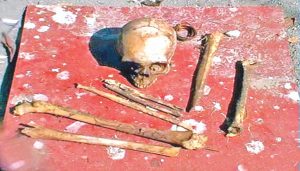 Mrs. Sandhya Singh’s case
Mrs. Sandhya Singh’s case
• DNA analysis indicated that the persons belonged to the same family. The computerized facial reconstruction technique identified Laila Khan in Laila Khan murder case.
• The reproduction of the facial features of an individual is based upon the average soft tissue thickness over various anatomical sites of the skull and jaws.
• Computer facial reconstruction has developed fairly enough to allow a virtual form of reconstruction of the face from a skull, making it easy and efficient.
• The initial data and facial shape comes from a 3D scan of the skull. This process is non destructive to the skull.
Do you think criminal lawyers would be interested in undertaking programs on forensic science?
As part of my profession, I regularly deliver lectures to Judges, Advocates, Police Officers and Forensic Scientists as and when I am invited. But since they have limited time it is very difficult to regularly have up-gradation programs for them. Any scientific program or anything related to technology cannot be a onetime program. We are working on plans on how the forensic scientists can upgrade different agencies using forensic science.
How do you think the concerned agencies can be educated adequately?
Whenever there is an involvement of human bodies, forensic medical people retrieve the samples for solving of the case. If they are not well educated about the latest methodology like DNA etc they would not be in a position to collect proper biological samples in important crimes like rape, murder etc. Similarly, if the police are not well educated about the latest methodology then they may not modernize their investigation. A person can become a certified expert only if, he/she gets adequate exposure in an established forensic science lab and regularly upgrades in the latest techniques. Based on their experience, most forensic scientists gain knowledge. However, they need constant vigilance on their efficiency and should be certified through routine tests that they are fit to do different type of analysis, so that they are able to generate better quality of scientific reports. Adequate fund support should also be rendered by the government for systematic up-gradation and regular monitoring of the efficiency of forensic professionals.
Police officers, medical forensic experts, judicial officials and the forensic experts should often meet to discuss on agendas of their needs, shortcomings and strengths to upgrade them. It is essential to have regular education for all of them, so that they may remain in close connectivity with each other.
Is there any need for research and development in the forensic science department?
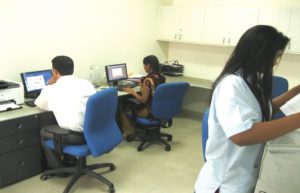 Most of the criminals/perpetrator use the latest technology to commit a crime. The investigators and the forensic scientist need to upgrade themselves to handle such hi-tech crime. The procedure and the techniques used for solving any crime need to be validated scientifically. In forensic context, experts have to work on trace evidence and have no other sample to experiment again. This situation demands experts to be very cautious to perform quality assurance by doing there agent blank, control sample tests before using the case sample. Validated scientific techniques should be used so that the case can stand in the court of law. Each crime varies from the other and hence a regular crime related research needs to be done. There should be a separate wing carrying out R&D and validating the scientific techniques in voice, tape, cyber, cloud forensic, mobile forensic, image processing, facial reconstruction, DNA, other biological methods, chemical testing in fire, explosive, narcotic drugs, house collapse, petroleum adulteration and scientific reconstruction of crime scene required for Hi-Tech crime. Government Forensic Labs are heavily loaded with crime cases and hence find it difficult to have R&D wing. There should be a separate forensic research labs like National Chemical Lab(NCL) and National Physical Lab (NPL).
Most of the criminals/perpetrator use the latest technology to commit a crime. The investigators and the forensic scientist need to upgrade themselves to handle such hi-tech crime. The procedure and the techniques used for solving any crime need to be validated scientifically. In forensic context, experts have to work on trace evidence and have no other sample to experiment again. This situation demands experts to be very cautious to perform quality assurance by doing there agent blank, control sample tests before using the case sample. Validated scientific techniques should be used so that the case can stand in the court of law. Each crime varies from the other and hence a regular crime related research needs to be done. There should be a separate wing carrying out R&D and validating the scientific techniques in voice, tape, cyber, cloud forensic, mobile forensic, image processing, facial reconstruction, DNA, other biological methods, chemical testing in fire, explosive, narcotic drugs, house collapse, petroleum adulteration and scientific reconstruction of crime scene required for Hi-Tech crime. Government Forensic Labs are heavily loaded with crime cases and hence find it difficult to have R&D wing. There should be a separate forensic research labs like National Chemical Lab(NCL) and National Physical Lab (NPL).
How do you compare the progress in Forensic Science in United States and other developed countries?
There is radical growth in forensic science globally. Most of the countries are taking it very seriously as forensic science report can prove a case scientifically and the judicial system can convict or acquit the suspect in a time frame there by providing justice to the victim. R&D in forensic labs is the need of the hour to nail the criminal in all type of cases. Most of the countries have a special wing of R&D. On my visit to FBI Lab, Chicago. I observed that FBI lab uses chemical tagging of ink as method for identifying the age of ink by using techniques like GC/MS, HPLC, HPTLC, etc. Since, India has no such chemical tagging system for inks, no accurate report can be given to indicate age of ink. Similarly, tagging of explosives is also done to indentify the origin of the explosive in terrorists’ activities. Subjects like nano finger printing, nano DNA are well established in USA, UK etc and are used to solve high profile cases. It is mandatory there to take test even before one flies. Likewise, in forensic department, efficiency tests are done; to ensure that the professionals are fit to examine and solve crucial cases. In United States, some of the forensic laboratories are under the control of the government and a few others are under private governance, but when accredited, they provide reports like any government controlled agencies. To motivate the government laboratories, so that they put in the best of their efforts- it is essential that the laboratories are stocked with adequate equipments and amenities. The directors of the labs should be empowered with proper power and authority and the expensive DNA Chemicals should be adequately supplied, so that there are fewer hurdles for the department. So all the administrative hurdles should be taken care of as forensic is a department that renders services to law and order. It should be more system oriented and not person oriented. If a process is person oriented the moment the person goes away the system collapses, however, if it is system oriented, it is followed by all the successors.
One of the most important developments across the world is technology, especially the cyber technology. Now, that the incidents of crimes have increased, what is the scope for forensic department, in detecting white-collar crimes?
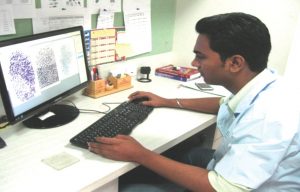 As I highlighted earlier, the staff requirement and recruitment rules are not being observed correctly. In 2006, all the necessary requirements in the sector have been developed for recruitment on contract basis, but till date staff recruitment has not been done adequately for efficient functioning. Since these sectors are very lucrative and private, no qualified candidate would be keen to work on contract basis without proper pay. These are the few areas that need to be addressed by the government and special care needs to be taken in order to let the forensic department come at par with the international benchmarks of its counterparts. Technology in this sector is quite good and is of international benchmarks. We have been able to solve many important cases by voice analyzer and laboratories have come up at all levels in many of the states.
As I highlighted earlier, the staff requirement and recruitment rules are not being observed correctly. In 2006, all the necessary requirements in the sector have been developed for recruitment on contract basis, but till date staff recruitment has not been done adequately for efficient functioning. Since these sectors are very lucrative and private, no qualified candidate would be keen to work on contract basis without proper pay. These are the few areas that need to be addressed by the government and special care needs to be taken in order to let the forensic department come at par with the international benchmarks of its counterparts. Technology in this sector is quite good and is of international benchmarks. We have been able to solve many important cases by voice analyzer and laboratories have come up at all levels in many of the states.
There might have been instances of difficult cases that were just on the verge of sinking; however you managed to crack them with your meticulous examining power. What were some of the challenges that you faced during your career?
Education is very important. Forensic laboratory is not in a position to handle social crimes. FSL takes up a crime only when the police registers the case. But there are many other areas where forensic services are required. At present we have very few less authentic people with proper credentials in the field. These various sector include, white collar crimes, e-investment frauds, cheque bouncing incidents, signature verification, forgeries, etc; for which people do not want to involve police, but ask for our services. Many of the banks have empanelled my company, Helik Advisory because four High courts have recognized Helik, having the adequate credentials to solve such cases. We have expert team that is highly skilled and are having prior experience of working in the government forensic department. We are having full fledged forensic laboratory here. The government of Maharashtra has authorized us through a letter, to outsource new forensic technologies that we are using. Apart from this, many of the banks and the Income Tax department have empanelled us as a regular scientific partner, as this will enhance their credentials as being supported by scientific agencies.
Another segment that we have in our sector is called Personality Analysis. Higher Education Boards across the country are authorizing us to do scientific segregation of weaker students, identifying and counseling them, identifying their potentials and motivating them to take up the right career for better future prospects. We are also involved in lie detection and voice analysis and for latest technology, Helik Advisory is recognized as a research center by Gujarat Forensic University and also PhD guide for forensic science. We are trying to develop and take forensic science to common people in the form of preventive, social and rural forensics.
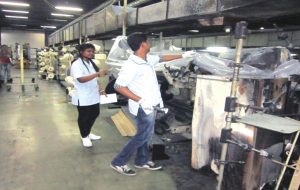 Preventive forensic is all about preventing any type of crime like duping or forgery, digital crimes etc. For example, with our suggestion, many insurance companies and banks regularly monitor the signature of their customers, so that they may prevent incidents of forgery by a false person. Even some education institutes are using modern technologies to check on the signature and other aspects, so that no forger gets away with a forged mark sheet and prevent the undeserving candidates from getting admission. Fake currency is a regular crime and our system and government is not paying the right attention to identify it to curb this kind of crime. Rashtriya Swasth Bima, is a scheme where the government has announced Rs.30000/- to any individual with a below poverty line status. Here the Dalal uses the forged finger prints to get the money. Such cases are not referred to forensic departments however; we can easily crack such cases. We are keen on recruiting students who are specialized and have formal training in forensic science. We are also keen to do considerable work in rural forensic, where actually the farmers are ignorant and not given dues even after so many years. Their ignorance on what precautions, and how to go about in dealing with their lands, documents, and property make them vulnerable to any type of crime.
Preventive forensic is all about preventing any type of crime like duping or forgery, digital crimes etc. For example, with our suggestion, many insurance companies and banks regularly monitor the signature of their customers, so that they may prevent incidents of forgery by a false person. Even some education institutes are using modern technologies to check on the signature and other aspects, so that no forger gets away with a forged mark sheet and prevent the undeserving candidates from getting admission. Fake currency is a regular crime and our system and government is not paying the right attention to identify it to curb this kind of crime. Rashtriya Swasth Bima, is a scheme where the government has announced Rs.30000/- to any individual with a below poverty line status. Here the Dalal uses the forged finger prints to get the money. Such cases are not referred to forensic departments however; we can easily crack such cases. We are keen on recruiting students who are specialized and have formal training in forensic science. We are also keen to do considerable work in rural forensic, where actually the farmers are ignorant and not given dues even after so many years. Their ignorance on what precautions, and how to go about in dealing with their lands, documents, and property make them vulnerable to any type of crime.
Please elaborate on your collaboration with foreign countries, and on going research and developments.
We are likely to hire some neuro-scientists and experts from abroad countries into our panel. Many countries and institutes there, approach us for training; however, as of now we are not having any tie-ups. Although, we are a two year old organization, we have ambitions of collaborating with many countries, upgrade ourselves and this will be in a mutually beneficial partnership. We are constantly bringing out state of the art technologies and are applying them on need basis.

